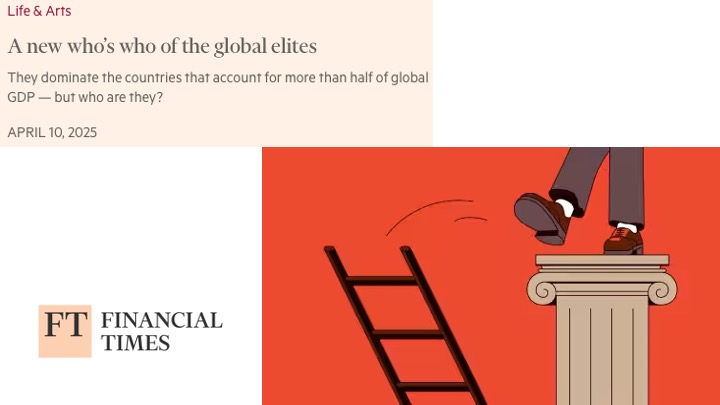An innovative study on global economic elites, with the participation of two BRU-Iscte researchers, Luís Casinhas and Sofia Vale was highlighted by the Financial Times in an article published on April 10, 2025. The Financial Times article, titled “A new who’s who of the global elites,” explores the findings of the “World Elite Database” (WED), which offers comparative data on economic elites in 16 countries, representing one-third of the world’s population and 54% of global GDP.
The study, titled “Varieties of Economic Elites? Preliminary Results From the World Elite Database,” reveals fascinating insights into the composition, characteristics, and dynamics of economic elites. The Financial Times article highlights, for example, that economic elites are even more male-dominated than cultural and political elites. At the same time, there is a growing convergence of economic elites with other elites, particularly with regard to their academic qualifications, with an increasing number of members of economic elites holding advanced degrees in fields such as business, economics, or law.
The research also points to significant differences between the economic elites of different countries. For example, the Chinese elite tends to be younger and with greater representation of individuals from rural areas, while a significant proportion of its members have an engineering background. In contrast, the US elite is characterized by a greater “financialization”.
The relevance of this study lies in its ability to provide an in-depth comparative analysis of economic elites, a group that wields significant influence in their respective nations and the global economy. The recognition by the Financial Times underscores the importance of the work developed by the BRU-Iscte researchers and their international partners for understanding contemporary power structures and social dynamics.

